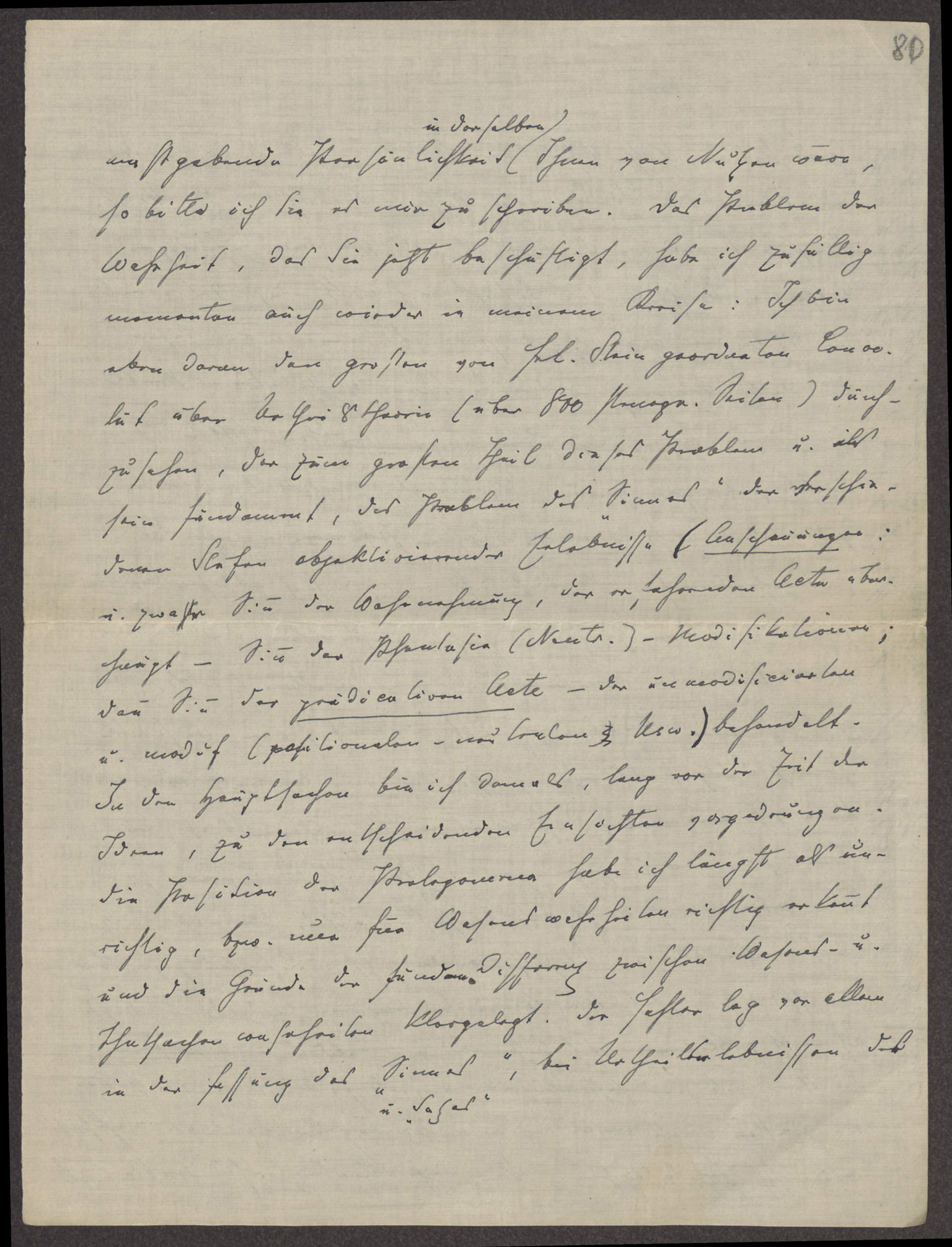


Letter from Edmund Husserl written 04.05.1918
Dear Mr. Ingarden,
My wife replied to your letter so excellently and in accordance with my intentions, to which I only have to add a few heartfelt personal words. And they may indeed be heartfelt, considering how many misunderstandings and God knows how much hate may separate our nations, nothing shall separate us. You can always count on our friendship. It is up to you what our friendship means to you or could mean for you; but I would gladly encourage and support your personal development as I appreciate you so much and as I so firmly believe in the purity of your character, and truly hope that your authenticity and modesty, as well as your undoubted philosophical talent, will lead to something good. First of all, though, stay strong, or get strong. What you consider a national calamity and perceive as such must become a positive driving force; and anyone who responds in this way is a divine force of exaltation for his nation. Everyone has a calling. Therefore, you have a calling and, God willing, you have been chosen. However, your vocation is not a practical political one. Live in philosophy and work for it, for the honest true philosophy, as you set out to do. That is your calling, even as a Pole.
If a recommendation for the academy or for a leading personality at the same would be of use to you, I would ask you to let me know. The problem concerning the “truth”, which occupies you now, is something that recently came up in my circle, too: I am just about to review the great convolute of Judgment Theory3 (over 800 pages written in shorthand) organized by Miss Stein, which addresses, for the most part, this problem and, as its foundation, the problem of the “meaning” of the various stages of objectifying experiences (intuition, i.e. the meaning of perception and that which is experienced – the meaning of imagination (neut[rality])-modifications; then meaning of predicative acts – the unmodified and modif[ied] (positional – neutral), etc.). Concerning the main issues, I advanced to the decisive insights long before the time of Ideas. I have long recognized that the position of the Prolegomena is incorrect or at least only applicable to the eidetic truth4 and clarified the reasons for the fundam[ental] difference between eidetic and matter-of-fact truths. The mistake mainly concerned the conception of the “meaning” and “proposition”, in the case of mental-judgment-processes of the predicative judged proposition and the judgment sense as beings or as “ideas” in the sense of beings (species). The independence of the meaning of a proposition from the accidental judgment and the judging does not mean that the ideally-identical is of specific nature. But from there, the final clarification leads to the deepest constitutive problems whose relationship to the orig[inal] consciousness of time is not hidden from you. However, those are the ones I am now concerned with. I not only work on a mere phenomenology of time, which cannot be purely isolated, but on the entire immense problem of individuation, the constitution of individual (i.e. the “actual”) being in general and according to its essential basic designs. Hence, it is a central or radical phenomenology. It advanced splendidly, although I was not yet able to address the systematic elaboration despite me working on this diligently and quite focused. I hope to be right again, contrary to the open and hidden reproaches of my friends – which I do not want to discuss openly. But I hope to complete my work soon: The horizons have almost been addressed universally and fully clarified; and we will make a big leap in establishing a truly scientific philosophy. Finally, please send my regards to your father and your philosophical circle. In friendship and with the warmest regards,
yours,
E. Husserl
